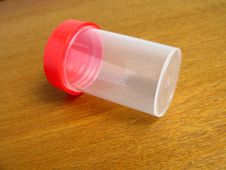Opening Times | Contact Us | Patient Access
CQC Rating Good
TESTS & RESULTS
Accessing Your Test Results
The easiest way to get your test results is to call the surgery after 3:30pm. This is when results are made available to our team, as they are not received from the hospital until later in the day.
You can also access your test results online through the NHS App or NHS GP Online Services. To set this up, just ask reception for your online account details or see our Register for Patient Access page for more details.
Please note: our receptionists are not medically trained and can only share results that have been reviewed and authorised by a doctor.
How Long Do Results Take?
-
Blood and urine test results usually take 3–4 working days to come back from the hospital.
-
Specialist tests (e.g. Ultrasound, MRI, CT scans) can take up to 4 weeks to return.
-
You do not usually need an appointment to receive test results unless your GP advises you to book one.


Urine Samples
Please can all patients bring their urine samples in to the practice before 12 noon. Any samples after this time, will not be accepted unless a patient is specifically requested to bring one in after having an on-the-day triage call with a GP.
Any unrequested samples will not be tested and will be disposed of.

Blood Tests
A blood test is when a sample of blood is taken for testing in a laboratory. Blood tests have a wide range of uses and are one of the most common types of medical test. For example, a blood test can be used to:
- assess your general state of health
- confirm the presence of a bacterial or viral infection
- see how well certain organs, such as the liver and kidneys, are functioning
A blood test usually involves the phlebotomist taking a blood sample from a blood vessel in your arm and the usual place for a sample is the inside of the elbow or wrist, where the veins are relatively close to the surface. Blood samples from children are most commonly taken from the back of the hand. The child's hand will be anaesthetised (numbed) with a special cream before the sample is taken.
You can find out more about blood tests, their purpose and the way they are performed on the NHS website
If the doctor or nurse has asked you to provide a pathology sample e.g. urine, stool, sputum, these must be left at reception before 11.00am, Monday - Friday.
X-Ray
An X-ray is a widely used diagnostic test to examine the inside of the body. X-rays are a very effective way of detecting problems with bones, such as fractures. They can also often identify problems with soft tissue, such as pneumonia or breast cancer.
If you have a X-ray, you will be asked to lie on a table or stand against a surface so that the part of your body being X-rayed is between the X-ray tube and the photographic plate.
An X-ray is usually carried out by a radiographer, a healthcare professional who specialises in using imaging technology, such as X-rays and ultrasound scanners.
You can find out more about x-ray tests, how they are performed, their function and the risks by visiting the NHS website.

We use cookies to help provide you with the best possible online experience.
By using this site, you agree that we may store and access cookies on your device. Cookie policy.
Cookie settings.
Functional Cookies
Functional Cookies are enabled by default at all times so that we can save your preferences for cookie settings and ensure site works and delivers best experience.
3rd Party Cookies
This website uses Google Analytics to collect anonymous information such as the number of visitors to the site, and the most popular pages.
Keeping this cookie enabled helps us to improve our website.
